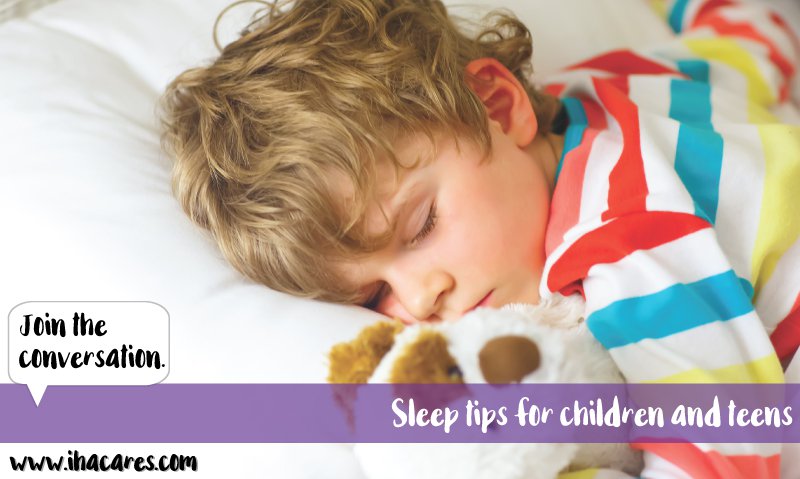
Sleep has a number of key health benefits for children and is important for their growth and overall development. Sleep is important for muscle growth, tissue repair and growth hormone release. Sleep is also critical for learning and memory consolidation, making sleep important for children to perform their best in school. Sleep is necessary for maintaining the overall health of our immune system and our metabolism.
The amount of sleep a child needs really depends on the age of the child. Newborns typically require the most sleep, which can be up to 14-17 hours per day. As children get older, their sleep requirements decrease so that by adolescence their sleep needs are similar to adults.
The National Sleep Foundation recommends that toddlers get 12-15 hours of sleep and preschoolers 10-13 hours of sleep per day, including their daytime nap. The National Sleep Foundation recommends 9-11 hours of sleep per night for school-aged children, 8-10 hours of sleep for teenagers and 7-9 hours of sleep per night for adults between 18 and 64. Adults aged 65+ need 7-8 hours of sleep.
Unfortunately, we know that many children and adults do not get the recommended amount of sleep each night. A 2004 National Sleep Foundation poll found that children of all ages got less than the recommended amount of sleep. Our sleep deprivation gets worse as children get older, with teenagers usually being the most sleep deprived age group.
A 2006 National Sleep Foundation poll found that 45% of adolescents got less than 8 hours of sleep per night, with high school seniors averaging only 6.9 hours of sleep on school nights. Adults do not usually fare much better, with about 40% of adults getting less than 7 hours of sleep each night.
Insufficient sleep is associated with daytime consequences, in which children can be very different than in adults. Most adults will present with symptoms of sleepiness such as falling asleep at work, while reading or watching TV. Children, on the other hand, can present with increased energy (hyperactivity) or problems with focus/concentration. They can sometimes look very similar to children with ADHD. In fact, children are sometimes misdiagnosed with ADHD when in the symptoms are really due to poor sleep.
Children can also present with more behavior problems or poorer school performance. Daytime sleepiness is also seen in children. For example, children may have a harder time getting up in the morning and may even be late for school as a result. They can also be more likely to fall asleep in the car or on the bus ride to school. Or, they can even fall asleep in the classroom, which can affect their ability to learn.
The National Sleep Foundation estimates that about 25% of teens fall asleep in the classroom at least once per week. Some children who are chronically sleep deprived will try to catch up on their sleep at home either through an after school nap or “sleeping in” on the weekends. If your child takes regular naps, especially if they are 45 minutes or longer, or if they “sleep in” more than 2 hours on the weekends, then your child may not be getting enough sleep.
If you have any concerns about your child’s sleep patterns, particularly if your child snores, pauses in their breathing during sleep, gasps for air, has mouth breathing, has frequent night awakenings or restless/sweaty sleep it is important that you talk to your child’s doctor as these could all be signs of obstructive sleep apnea. Difficulty falling asleep or staying asleep could also be signs of other sleep problems that you should discuss with your child’s doctor.
